2 Years in Summary
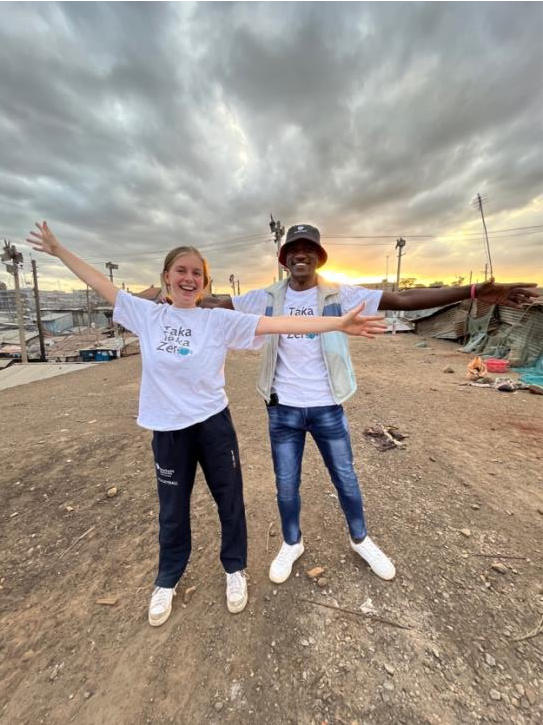
Introduction
Laidlaw Foundation has been a privilege not only due to the numerous learning opportunities, but by enabling me to immerse myself into two projects I have always felt passionate about, through the provision of resources and time. The initial motivation to become a Laidlaw scholar came from the many questions and challenges I faced in the work I was already doing. Questions of how to lead more convincingly, delegate tasks more effectively, inspire those I work with, maintain a professional relationship with individuals I work with but are also the same age as myself, etc. The hope was that Laidlaw would help to develop skills and tools which would consolidate confidence in my decision making and leadership style, ultimately allowing for me to be a more effective, calm, and consistent leader working towards sustainable change in the world.
At the start of the two-year journey when asked what type of leader I aspire to be my answer was this: to be a humanitarian and research-driven leader - one who inspires change, collaborates with, and leads determined, like-minded individuals. It also included that I would be one who always considers human lives and the environment. While this aspiration is still relevant and I believe to have grown closer to this vision, my goals have become more nuanced and informed by experience: considering all individuals in each decision is often impossible; research, as initially understood in terms of academic research, is often unable to be implemented effectively and ethically in the real world; some leadership decisions must be made abruptly and be based on intuition; and most importantly, inspiring and creating change is rarely linear.
These lessons, amongst many others, I am grateful to have had the opportunity to learn through the multidimensional approach Laidlaw takes. The following sections will reflect on the learning, challenges, and growth throughout, and as a result of the two-year Laidlaw scholarship.
Year 1 Research
Summer 1 of research was a psychology study aiming to understand how black and white Americans may differently perceive video footage of violent encounters between white police officers and black citizens. I was very fortunate to have had the opportunity to conduct my own online study with over 300 participants and therefore collect new data that didn’t exist beforehand.
From these 6-weeks, I was able to gain insight into the academic side of myself as well as more understanding of how I envision my future career. A big motivation of joining Laidlaw was due to a genuine interest in a research career. Psychology as a discipline and through the type of learning and knowledge it has allowed me to acquire through my degree made me wonder whether research could be a future career path. I learned two important lessons.
Firstly, the research outcomes and type of knowledge I was acquiring through background reading and communication with my research supervisor were closely aligned to my interests. Due to the lack of statistical skills, I had at that stage and subsequent lingering questions after the Laidlaw research period, I have decided to follow up on this study for my dissertation!
However, on the other hand, it became very clear that this type of work does not suit my personality nor would fulfil me in the long term as a career. Particularly regarding the impact, I have always wanted to make in my life and wanting to interact with many individuals on daily basis, research is not the right fit for me. The individual working nature and focus on only one specific topic for an extended period did not engage me and bring out the best side of me. This has been an enlightening and important process; while it may not sound positive, it brought clarity to my future and who I am as a worker beyond university academia.
The Inbetween
The leadership sessions, workshops and especially the residential pushed me in ways I did not expect. Particularly the residential was one of my favourite parts of the program as it opened my network to a range of individuals of diverse backgrounds and interests. With Covid, I was largely unaware of the different scholars, their research interest, and general personal backgrounds, and I was pleasantly surprised to be surrounded by a group of individuals keen to learn about each other, challenge each other’s ideas but also support one another in the different activities of the weekend.
Personally, I always considered myself a very strong, outgoing individual where it takes a lot to show weakness (more accurately – to admit to weakness). This weekend forced me to push myself and accept new challenges and the fact that some activities were a stretch that my mind and body couldn’t cope with. During the caving I felt incredibly claustrophobic and overwhelmed. I tried to push through the activity for around 45 minutes until I hit a mental wall and had a full panic attack – the first one I can remember to ever happen. This was very eye opening, making me feel very vulnerable but also a sense of release and relief. A lot of other emotions I had supressed were able to be felt and I realised that some things I maybe can push myself to do to an extent, but not everything can be done perfectly. It is important to listen to your body and mind and ask for help when needed because not everything has to be seen through on my own. This was a great feeling to realise!
Year 2 Leadership in Action:
This was by far the most enriching experience I have had to date. I will forever be grateful for the unconventional route I took for my LiA summer: I decided to connect my LiA with Taka Taka Zero, the Enactus social enterprise project I started two years ago, based in Kenya. While I knew this wouldn’t be the traditional route to take as I would be in Kenya alone for 6-weeks working on a project that the Laidlaw Foundation had previously never worked with or known about, from the second the idea came into my head, I was determined to make it happen and that I would be satisfied with nothing less.
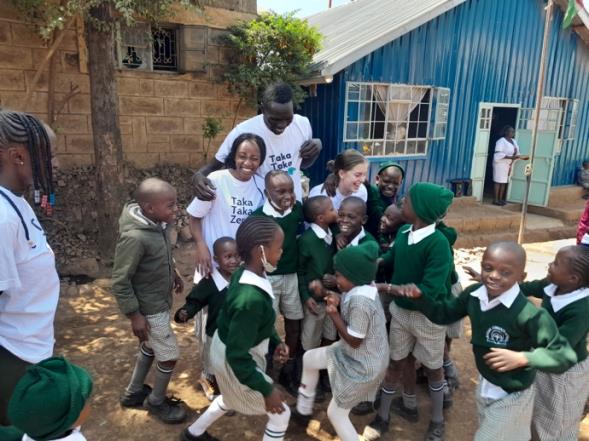
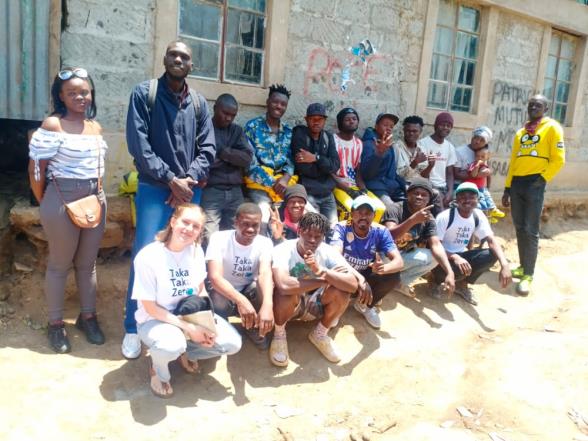
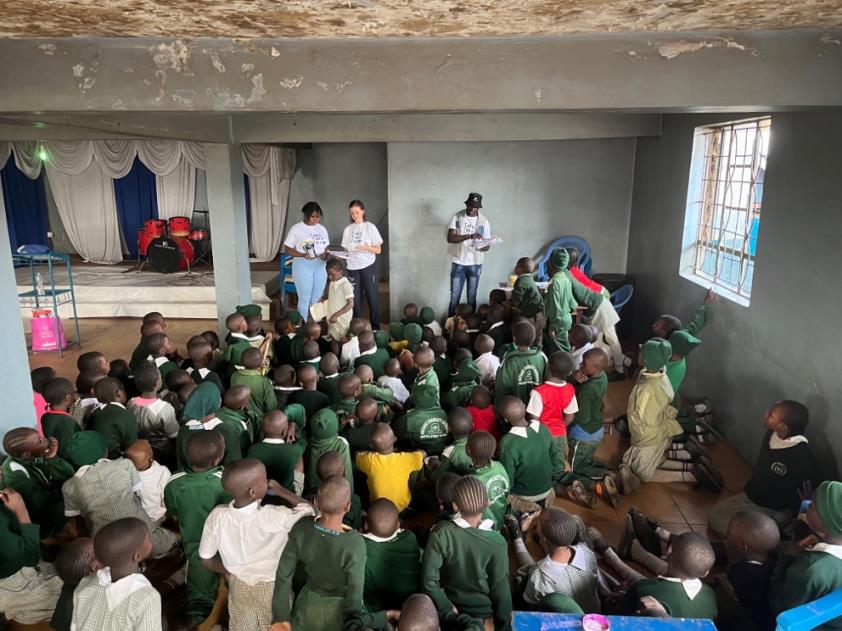
What is Taka Taka Zero?
Taka Taka Zero is a youth-led zero-waste food program and sustainable business based in Nairobi, Kenya. It is an Enactus Durham project I co-founded and have co-led since November 2020. We aim to reduce hunger, ensure the responsible use of natural and man- made resources, and use an innovative technology and business model to a) increase food security, b) decrease losses in food products across the supply chain, and subsequently c) foster sustainable environments and futures.
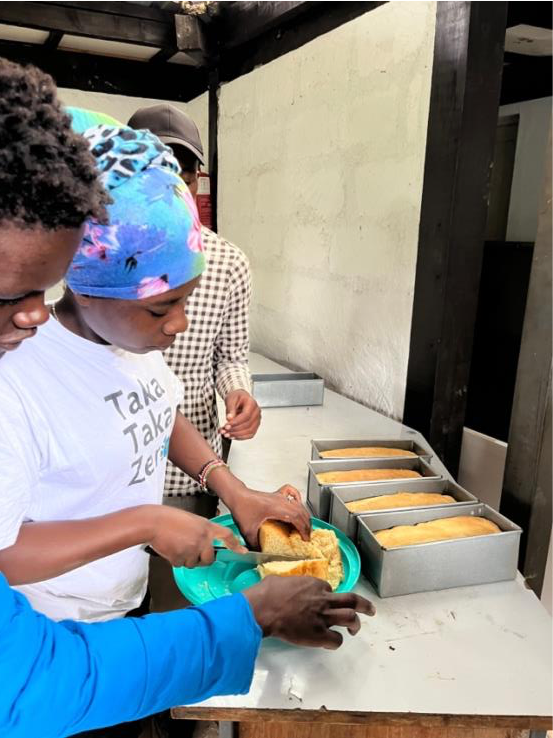
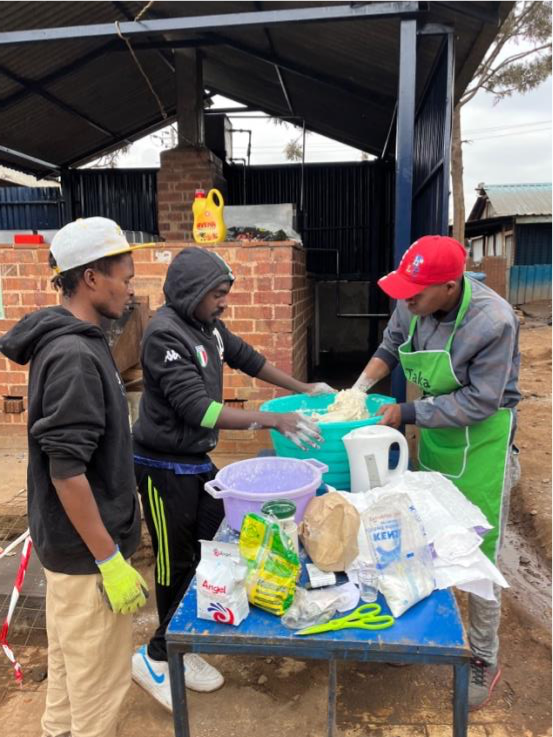
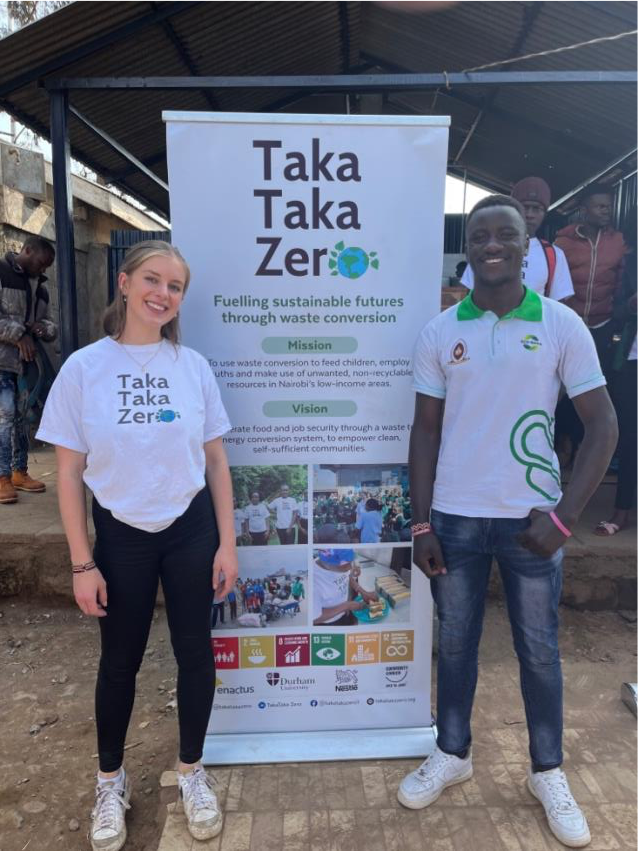
By harnessing the power of business and an innovative technology known as the Community Cooker, which is a waste-to-energy technology that safely and sustainably incinerates non-recyclable waste, using it as fuel for cooking, our vision is to create long-term change specifically in Mathare and Kibera slum in Nairobi.
Below: the community cooker which our youth employees use to cook two meals daily for the 315 school children by incinerating waste for thermal energy.
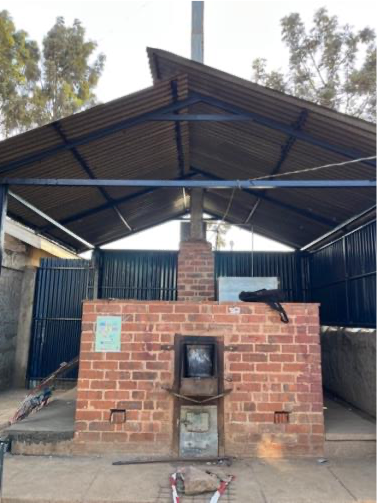
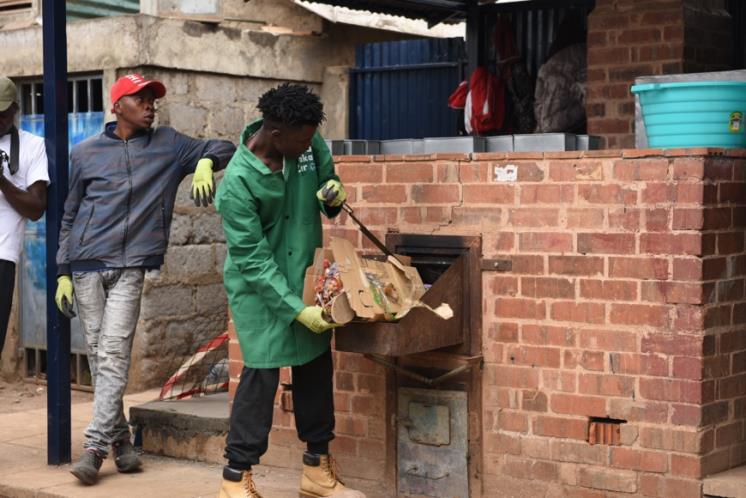

Big wins:
While the 6-weeks were incredibly tiring, stressful and all consuming (being reachable 24/7, managing all aspects of the project alone, listening to the challenges of our beneficiaries daily, feeling responsible for the success of the project and lives of our beneficiaries), the progress that was made during that time outweighed all of this.
Something I am most proud of was the launch of our project on the 10th of September. The amount of thinking, organisation, delegation of roles, and work that went into planning the speeches, writing the invitations, and following up on each, making sure all materials were on site, creating last minute banners and ordering these, finding newspapers to cover the event, making sure ingredients for bread baking and enough waste to fuel the cooking was on site, etc. was overwhelming to say the least. I barely slept or did anything for my own wellbeing for a couple of weeks, I was constantly in touch with all stakeholders and the day itself still posed many more challenges than hoped for. Invitees came late, our employees came late, everyone was acting SO CALM, and nothing seemed to go to plan.
What I really learned from this event and its planning, are the cultural differences between my German upbringing and mindset, with the Kenyan mindset and working style. Being on time, tidy and essentially perfect has been deeply ingrained in me, which made it very hard to work in an environment where being between 2-3 hours late is a given and subsequently no stress is wanted or experienced.
However, the entire launch was a success in the end. We acquired two new partners, had two newspapers write a story on our event, a total of around 85 attendees of the event, 2 youth groups, representatives from over 10 organisations/foundations/companies, and SO many good responses to the project with ideas of new areas to expand to.
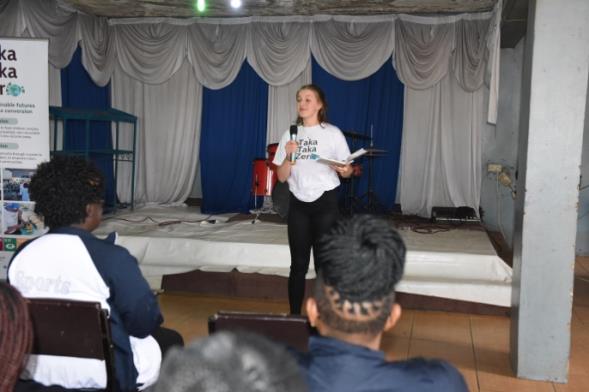
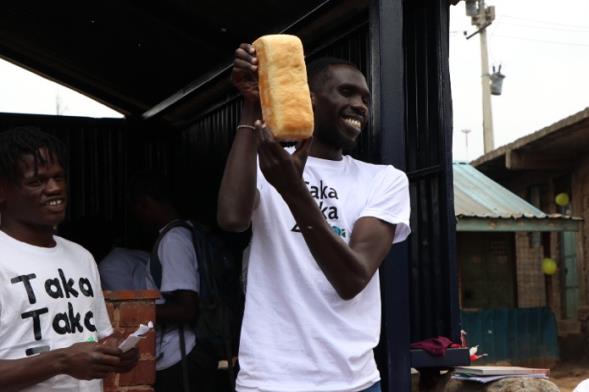
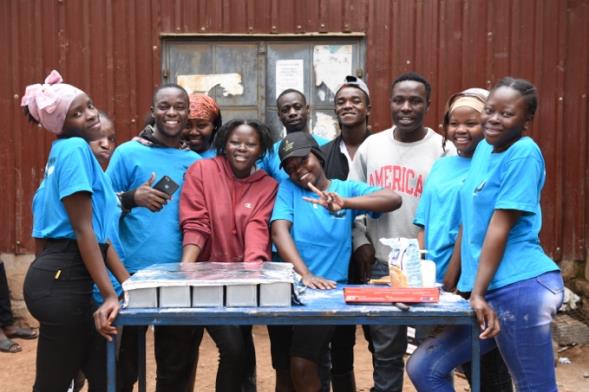
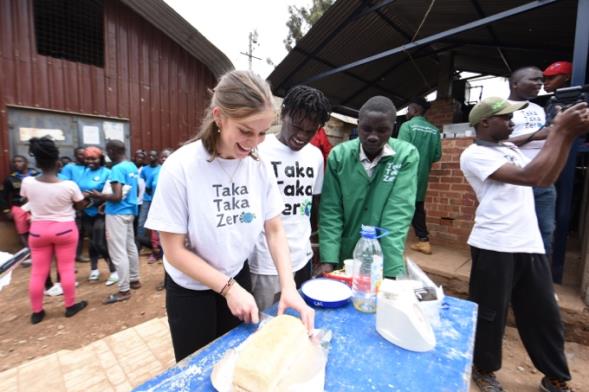
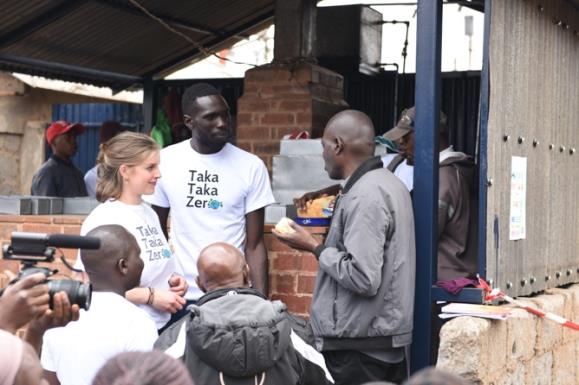
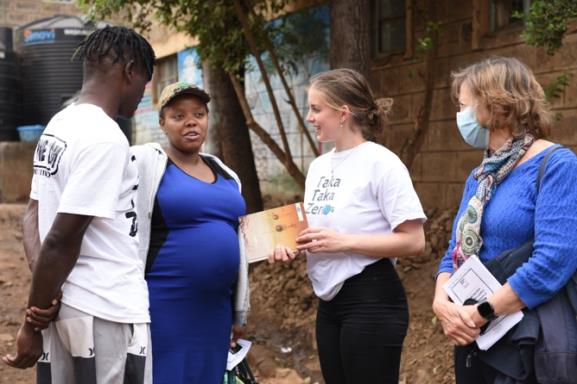
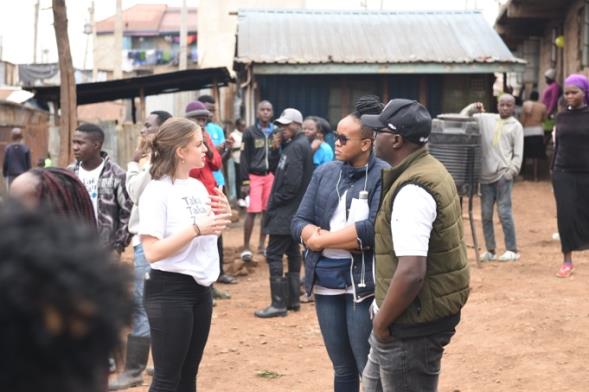
Another aspect I am very proud of is my networking skills that I developed and the initiative I showed to reach out to new partners and companies. To try and acquire supermarket partners I went to the respective shops to pitch the idea and hand out contact information, and for Carrefour I even had a formal in person meeting with a representative. I also called and messaged different company, NGO, and foundation directors and through this constant effort I was able to personally meet Kennedy Odede, CEO and founder of SHOFCO which is the biggest NGO in Kenya and world renounced. By having a presence and reaching out to different individuals together with the team, we managed to also be on national live TV twice during my stay! My pitching skills greatly improved, and I could feel my confidence grow with each day when discuss the project and being a leader of the team. I was happy to hear positive feedback also be discussed amongst the school regarding my effort, passion and drive.
Below: photo of one of the two newspaper articles written on us, as well as evidence from our live interview.
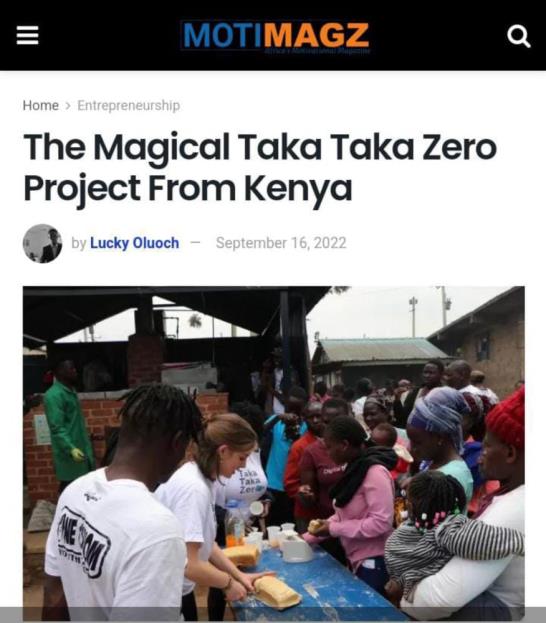
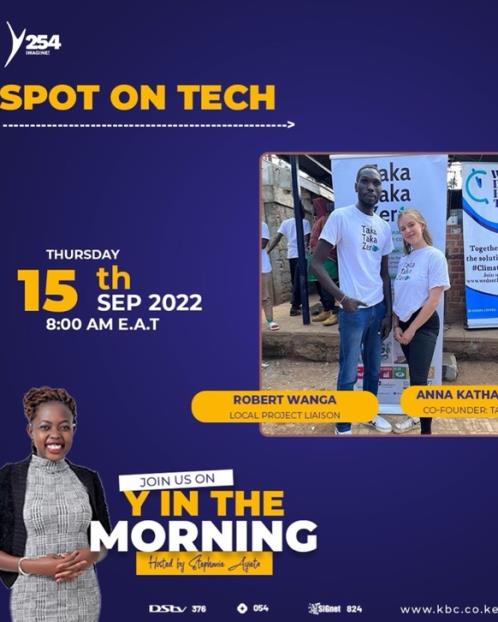
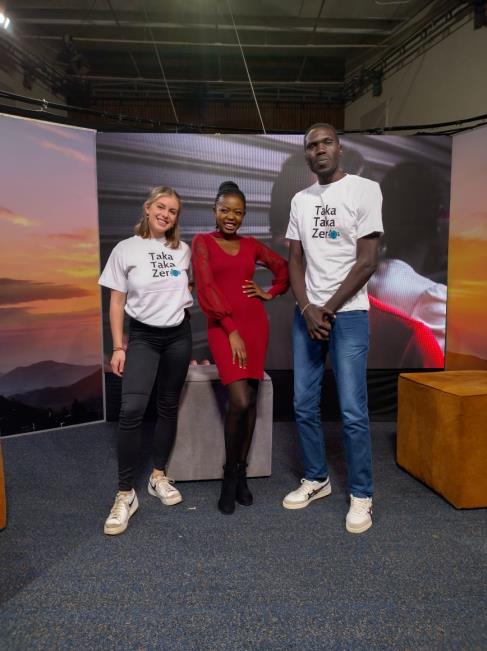
Main challenges:
One of the main challenges was being alone. While I have solo travelled and normally enjoy my own company, the stressful, overwhelming, and intense feeling of responsibility was very difficult to deal with alone. I was working and reachable everyday as well as the weekends from 7am until 1am, and the pressure trying to manage everyone’s expectations especially after developing more personal relationships with our beneficiaries was very difficult to cope with.
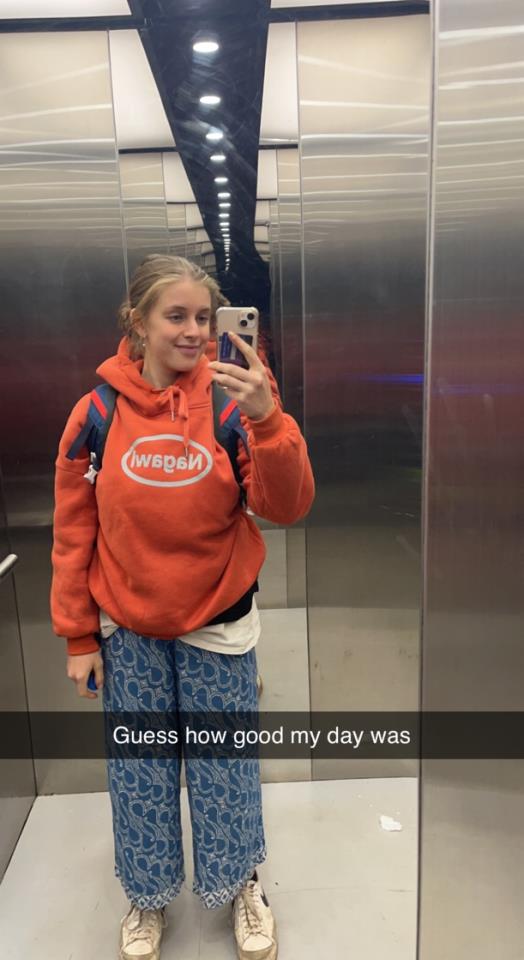
Along with this came the pressure to make small, as well as big daily decisions on my own, without the frequent support from the project team in Durham. Beneficiaries would ask for more money telling me about their personal struggles, financial decisions had to be made daily, all beneficiaries had their own questions and tasks which they needed support on – all of these could be overwhelming. What I found particularly difficult was discussing finances and budget with our beneficiaries. Since we are the ones leading the project, there is no one else to truly guide us in what is right or wrong when discussing salaries. This made it very emotionally burdening to negotiate with our beneficiaries and employees – they would take the emotional route discussing their problems and need for more money, which could make it easy to lose track of what we believed to be right, wrong, and within the capacity of our project.
I had to learn to maintain a professional boundary between myself and all beneficiaries and believe in myself and the decisions I was making. I believe I have become significantly more confident and able to make decisions due to the lessons I learned (being manipulated into paying individuals way too much, for example), as well as ask for help and advice from locals when I am unsure. In the photos below you can see me at St Paul’s university trying to find more volunteers to support the project and give that local insight we were lacking.
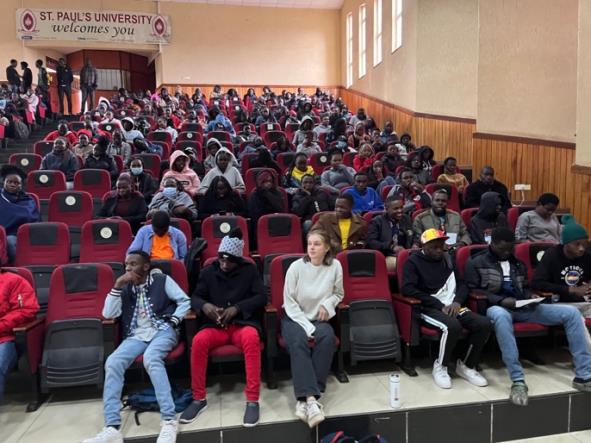
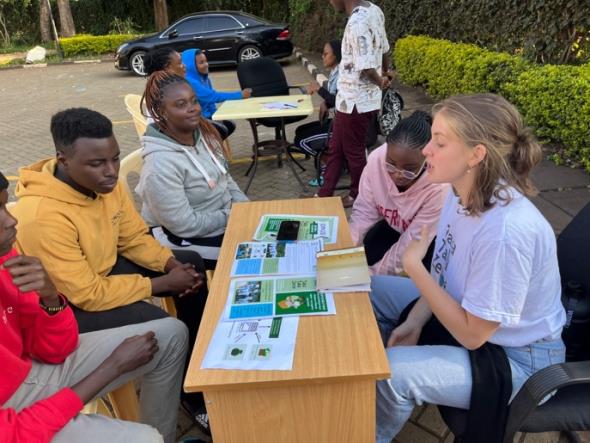
Due to multiple financial conflicts as well as a loss of general respect from an employee/volunteer towards me, we even had to make the hard decision of ending the working agreement with him. This was our longest volunteer who started the whole project with us on the ground, but I am proud to have stood up for myself and realised that the way I was being treated as a team member, as well as team leader, was unacceptable and harming myself and the project.
Summary of what I have learned and general growth:
In general, I can confidently say that I have grown as a leader and a learner.
-
I have developed my ability to pitch and network. By going out of my comfort zone I have
become more confident in approaching individuals and companies, allowing for us to spread
the word of the project and acquire new donors, partners, and volunteers.
-
I have learned how to adapt proposals to the audience I am speaking to and being culturally
aware of what type of pitching is relevant and effective.
-
I understand the importance of community engagement and constant involvement at all stages
and with all stakeholders for project success.
-
I learned how to delegate tasks effectively and without feeling of shame or incompetence. At
the beginning I was overworking myself and taking on all roles. Through effective delegation,
the project has become more efficient, and I am living a healthier work- and lifestyle.
-
I have become better at asking questions to understand the community and the root problem
of issues; and adapting the project with new understanding. My new project ethos: Taka Taka Zero is not constant and will forever be changing to adapt to the needs, information, and beneficiaries of our project. This comes with a lot of flexibility, open mindedness, and creativity.
-
I have become a more effective communicator. At the beginning of my journey, I reflected on the fact that I often felt unable to articulate myself and speak out in a room of intelligent people. I now feel more confident, worthy, and able to take on the role of leader in this project and other projects in the future.
-
I have become more flexible and attuned to the needs of the community and changing environment. During the election period, we were unable to fulfil the tasks and goals we had planned. Instead, the community had different needs and priorities such as safety for their children and feeding their children while the school was closed. Therefore, we set out to focus on that and put the needs of the project to the side.
-
I used to find it difficult to get people on board with our mission, but now I believe to have developed my voice and am more able to convey my passion as well as deliver the goals and tasks more effectively. This has brought people on board and to believe in Taka Taka Zero.

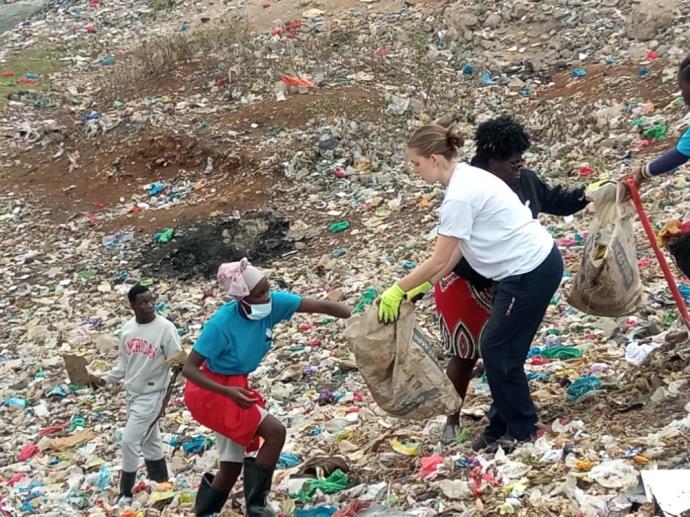
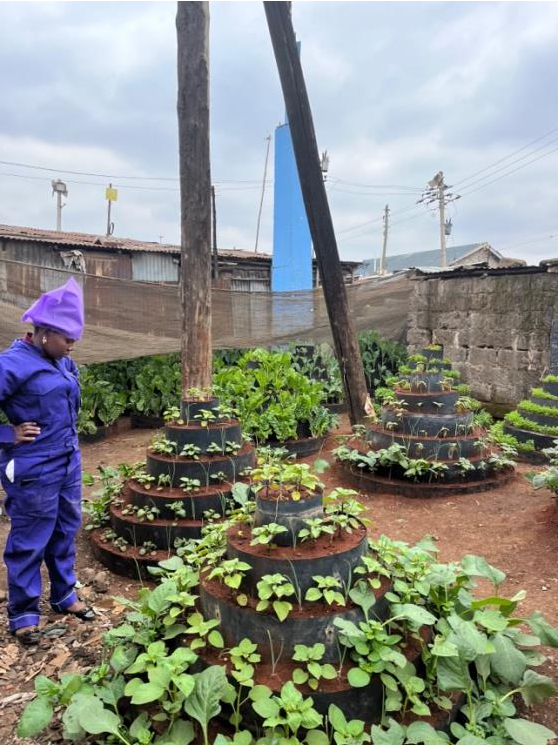
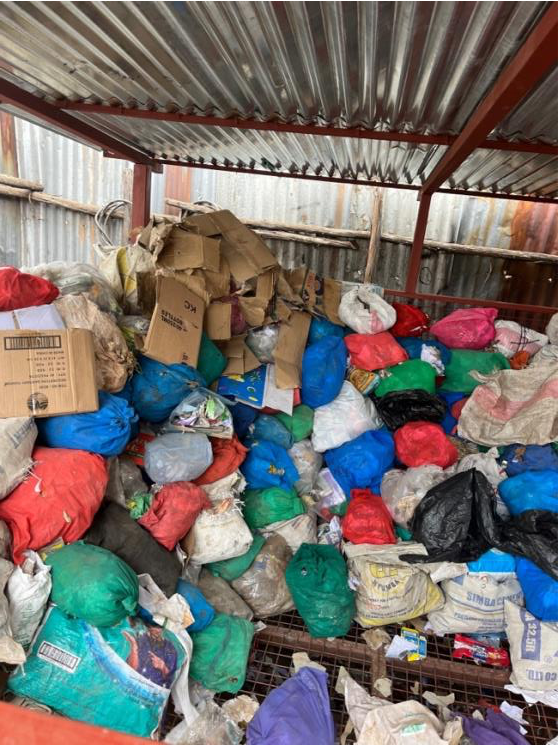
Please sign in
If you are a registered user on Laidlaw Scholars Network, please sign in